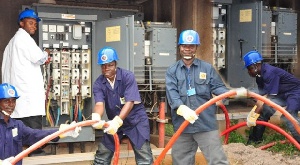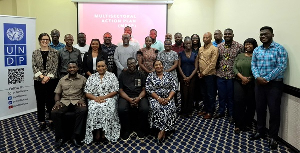The Energy Commission (EC) is set to issue more certificates to qualified electricians following this year’s electrical wiring certification examinations aimed at regulating electrical wiring services in the country.
This year’s examination is scheduled to take place from 18th to 27th June, and involves 1,237 candidates made up of domestic, commercial, and industrial electricians from all ten regions.
The examination is in line with preparations by the EC toward enforcing the Electrical Wiring Regulations, 2012 (LI 2008), which seek to protect life and property by ensuring electricians avoid shoddy electrical wiring.
Speaking with the B&FT at one of the examination centres in Accra, Janet Quaye-Assistant Public Affairs Officer, Energy Commission, expressed optimism for the project - considering the increasing numbers of candidates each year since its inception.
She reiterated the Commission’s resolve to curb electric-related fire outbreaks in the country, saying: “The move will ensure enforcement of the minimum standards for electrical wiring of facilities, and ensure the safety of lives and properties in the distribution of electrical energy.
“And once these personnel have been certified, I am certain they will not compromise with uncertified ones to ensure that work is done professionally to address the menace.”
The Ghana Electrical Wiring Regulations were passed by the Parliament of Ghana into law on 24th February, 2012. The key objectives of the Regulations are to guide professionals who engage in electrical wiring and installation works in the performance of their duties, and to ensure safety of lives and property.
Under these regulations, only certified electrical wiring professionals (CEWPs), qualified under the regulations, will be legally entitled to undertake indoor electrical wiring projects.
To qualify for the examination, a person must have been an apprentice or have gone through formal education and practical training.
The certification process comes in three stages: the written examination, practical, and interview sessions.
A certificate shall be subject to renewal every five years, with the applicant passing an interview.
Business News of Wednesday, 22 June 2016
Source: B&FT













